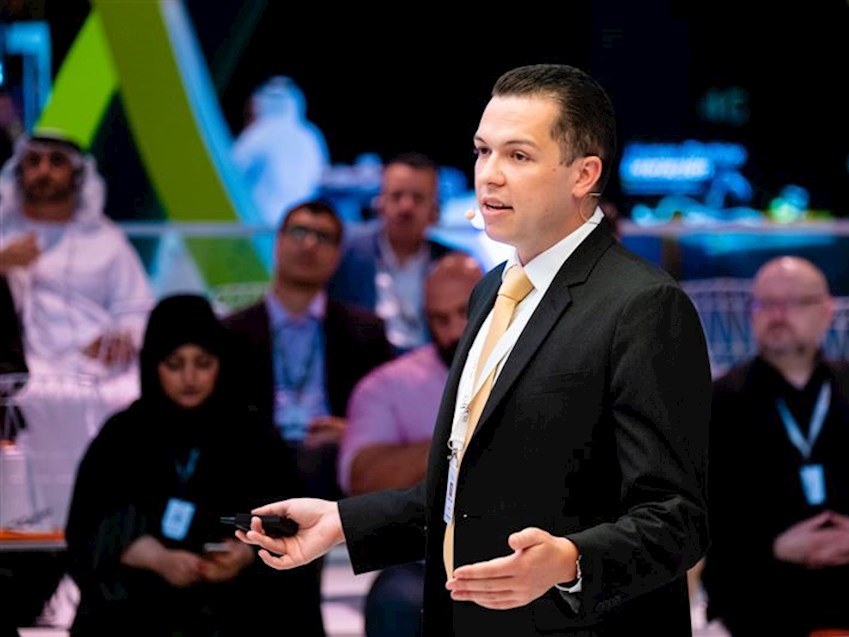March 28, 2019
Journalists Are Key to Fighting Misinformation, Fact-Checking Expert Says at 18th Arab Media Forum
Fact-checking journalists around the world have become a primary defence against fakery and are even playing a big role in debunking fake news on large social media platforms, said fact-checking reporter Daniel Funke at the 18th edition of the Arab Media Forum on Thursday.
Speaking on the last day of the Forum, during a session titled ‘The Age of Fabrications’, Funke, who works for the International Fact-Checking Network at Poynter Institute for media studies, spoke about the proliferation of misinformation in our world today and what can be done to combat it.
“We can all be fact-checkers,” Funke told the audience, which included journalists from different media organisations. “Journalism is the primary way we can fight bad information online.”
“Fake news is not a great term to describe this phenomenon,” Funke added. “It really doesn’t mean anything anymore because it has become greatly politicised.”
Defining the three types of “information disorder”, Funke said: “The first type is misinformation, and this is the type of information that is false but not created with the intention of causing harm. It’s not always clear why it has been shared. On the other side, there is disinformation, which does imply intent. It is demonstrably false content that is trying to achieve a goal. It could be to sway elections or to get someone to share something, or even make money on a website. The third type, is mal-information, which is stuff like hate speech and targeted harassment. It might include elements of false information and misinformation, but is not necessarily false.”
Funke explained that within misinformation, there are also different types, such as satire and parody, which sometimes people don’t understand and can mistake for real news.
“Fake news is not new, it’s been around for a very long time,” he said, as he shared an example of a hoax by a New York City tabloid in the 1880, which had published a fake news story about aliens flying on the surface of the moon.
Meanwhile he also spoke about manipulated photos, which are photoshopped to look real and are intended to either cause panic or laughs, and deep fakes. “Deep fakes are videos that leverage Artificial Intelligence to make it look like someone is saying or doing something that they actually didn’t.”
Funke pointed out that there is significant evidence to show that fact-checking matters, especially with the proliferation of fake news on our news feeds. He shared a basic methodology for journalists who want to become fact-checkers. “You need to find a good claim that people are believing or could believe in the future and isolate that news and dissect it. You need to find key sources to reach a conclusion and then correct it in an article, tweet, etc.”
He added: “Fact checking can change people’s minds about a specific claim and about falsehoods. When fact checkers find something to be false, institutions will change their data.”
He highlighted how fact-checking reporters have begun working with big tech platforms around the world to try to limit the spread of information on these platforms. “Facebook has given access to fact-checkers to decrease the reach of misinformation by up to 80 per cent, while Google has also relied on factcheckers to surface credible information.”
Held under the theme ‘Arab Media: From Now to the Future’, the region’s leading annual event for the media industry has brought together more than 3,000 prominent regional and international media leaders, scholars, writers and experts, to share their views on the current state of the Arab media and the shifts that are shaping the future of the industry.






